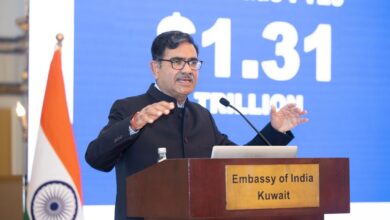BIMSTEC and the Bay of Bengal century: India’s vision for regional power

The Bay of Bengal Initiative for Multi-Sectoral Technical and Economic Cooperation (BIMSTEC) stands at a pivotal juncture as it convenes its 6th Summit from April 2-4, 2025, in Bangkok, Thailand.
This gathering underscores the growing significance of BIMSTEC in fostering regional integration and collaboration among its seven member states: Bangladesh, Bhutan, India, Myanmar, Nepal, Sri Lanka, and Thailand. With a combined population exceeding 1.7 billion and a collective GDP of over $5 trillion, BIMSTEC embodies a formidable economic bloc poised to influence the evolving global order.
BIMSTEC’s significance in the regional and global context
Established in 1997, BIMSTEC serves as a bridge connecting South and Southeast Asia, focusing on multifaceted cooperation across 14 priority sectors, including trade and investment, transport and communication, energy, and counter-terrorism. This broad spectrum of collaboration reflects the organization’s commitment to addressing shared challenges and harnessing collective strengths. The forthcoming summit, themed “Prosperous, Resilient, and Open BIMSTEC,” aims to adopt the Bangkok Vision 2030—a strategic roadmap outlining long-term goals for economic cooperation, environmental sustainability, and regional security.
India, as the largest economy and a founding member of BIMSTEC, plays a pivotal role in steering the organization’s agenda. The country’s “Neighbourhood First” and “Act East” policies align seamlessly with BIMSTEC’s objectives, emphasizing regional connectivity and integration. India’s commitment is evident through its leadership in various sectors:
- Security and Energy: India leads initiatives aimed at enhancing regional security cooperation and energy integration. The BIMSTEC Energy Centre in Bengaluru exemplifies efforts to promote energy collaboration among member states.
- Counter-Terrorism and Transnational Crime: India has been instrumental in advancing cooperation to combat terrorism and transnational crimes, recognizing the importance of a secure environment for regional prosperity.
Furthermore, India’s substantial financial contribution, covering 32% of the BIMSTEC Secretariat’s expenditure in Dhaka, underscores its commitment to the organization’s operational efficacy.
In an era marked by shifting geopolitical dynamics and the reconfiguration of global alliances, BIMSTEC offers a platform for its members to assert their collective influence. India’s proactive engagement within BIMSTEC exemplifies a strategic move towards fostering a multipolar world order, where regional groupings play a crucial role in global governance.
The anticipated signing of the Agreement on Maritime Transport Cooperation during the summit is poised to enhance maritime connectivity across the Bay of Bengal, facilitating smoother cargo and passenger movement. This agreement not only bolsters intra-regional trade but also positions BIMSTEC as a critical player in global maritime logistics.
Moreover, the collaboration between BIMSTEC and organizations like the Indian Ocean Rim Association (IORA) and the United Nations Office on Drugs and Crime (UNODC) reflects a commitment to addressing transnational challenges through cooperative frameworks. These partnerships amplify BIMSTEC’s voice in international forums, contributing to shaping norms and policies that resonate with the collective interests of its member states.
Challenges and the path forward
Despite its potential, BIMSTEC faces challenges that could impede its progress. The organization’s broad mandate across numerous sectors risks diluting focus and stretching resources thin. Streamlining priorities and ensuring effective implementation mechanisms are essential to translate commitments into tangible outcomes.
India’s leadership is crucial in navigating these challenges. By leveraging its diplomatic influence and economic clout, India can drive consensus-building, enhance institutional capacities, and promote a results-oriented approach within BIMSTEC. Furthermore, fostering people-to-people connections and cultural exchanges can strengthen the foundational ties that underpin regional cooperation.
As BIMSTEC members convene in Bangkok, with India’s Prime Minister Modi attending, the summit represents more than a routine diplomatic engagement; it embodies a collective aspiration for a prosperous and integrated Bay of Bengal region. India’s leadership within BIMSTEC is not merely a reflection of its regional ambitions but a testament to its commitment to collaborative growth and stability. By championing initiatives that promote connectivity, security, and sustainable development, India, alongside its BIMSTEC partners, contributes significantly to shaping a new world order—one that values regional cooperation as a cornerstone of global peace and prosperity.
Source: KhaleejTimes












